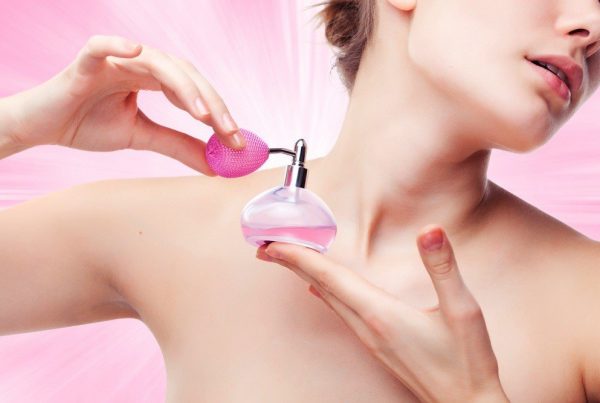There has recently been a lot of buzz around hormonal skincare, and rightly so, as hormones play a big role in impacting skin conditions. When it comes to achieving healthy and radiant skin, it is important to understand the role of hormones. Hormonal fluctuations are an inherent part of a woman’s life that affects various physiological aspects, including skin health.
By understanding your hormonal cycle, selecting skincare products based on your hormonal changes and exploring in-office treatments, you can harness the power of hormones to enhance your skincare routine and achieve a radiant complexion.
Understanding your hormonal cycle
Along with your menstrual cycle, there are two major periods that have substantial hormonal changes, which are pregnancy and menopause. As your hormones change, you may notice that there are variations in oiliness, hydration levels and skin texture.
It is important to pay attention to your skin’s response during these different phases of your life and adjust your skincare products accordingly.
Oestrogen and progesterone in particular play an essential role in regulating skin health and appearance. During menopause, hormonal changes occur, including a decline in oestrogen levels. During pregnancy, increased levels of oestrogen and progesterone drive hormonal shifts.
Skincare during menopause
When we think about hormonal skin, we tend to focus on breakouts, our hormones regulate our skin conditions in many more ways than triggering hormonal acne. Common skin-related issues during menopause include dryness, thinning of the skin and reduced elasticity.
A decrease in oestrogen production primarily causes these changes, leading to decreased collagen production and impaired skin barrier function. It is also critical to note that menopause can also worsen pre-existing conditions like rosacea or eczema due to changes in the skin’s pH and moisture levels.
My product recommendations
To manage these skin problems, maintain a consistent skincare regime that targets aged skin. Below is my ideal skincare regime for those navigating menopause:
- A gentle cleanser that preps your skin for products. My product recommendation: ZO Skin Health Gentle Cleanseror Dr GRANDEL Gentle Foam Cleanser
- A toner to hydrate and replenish after cleansing. I recommend: DERMALOGICA Antioxidant Hydramist, and QMS Hydrating Toner
- An exfoliant to remove unwanted thick and dead skin cells, giving a better glow and increasing cell turnover. I would suggest: sk.in avenge | glyco-10 or SOTHYS Gommage Exfoliant Bio-Peel.
- Moisturiser will replenish the loss of water retention with hyaluronic acid, ceramides and fats. Your nighttime moisturiser should contain additional antioxidant ingredients. My product recommendations: LAMELLE Serra Restore Cream, NEOSTRATA Skin Active Matric Support
- Sunscreen protection is vital all year round, as it protects the skin from harmful ultraviolet (UV) rays and infrared radiation (IR). Perhaps: SKINCEUTICALS Physical Fusion UV Defense, or HELIOCARE 360° Age Active Fluid SPF 50
- Targeted treatments will be applied as needed before sunscreen during the day and after your treatment serum at night. My recommendation is to consider applying vitamin C to treat pigmentation, texture, collagen loss, and elastin stimulation during your morning skincare routine and consider retinol for your evening routine. My product recommendations: sk.in gloss | radiant shot, SKINCEUTICALS C E Ferulic
Skin changes during pregnancy
During pregnancy, hormonal shifts can lead to a range of skin issues such as melasma (hyperpigmentation) and acne, which is caused by the overproduction of sebum due to increased hormone levels.
Many people are cautious when it comes to skincare and pregnancy. As such, knowing what skincare products to avoid while pregnant becomes top of mind. The good news is that you don’t have to make major changes to your current skincare regime. It is advisable instead to keep your routine simple as your skin is unpredictable during this stage of your life, as you want to avoid any potential skin reactions or sensitivity.
As much as retinol or vitamin A is a powerful ingredient, it needs to be avoided when pregnant.
Studies have shown that high doses of vitamin A during pregnancy can be harmful to an unborn child. Oral retinoids used as an acne treatment are known to cause birth defects.
My product recommendations
To manage these skin concerns during pregnancy, I have provided an overview of what might happen to your skin while you are expecting and breastfeeding and how best to treat it:
- Hyperpigmentation: Products containing vitamin C will reduce pigmentation and brighten your complexion. My product recommendation: LAMELLE Correctives Vita C Lipid
- Hormonal acne: When managing acne during pregnancy, it is important to use cleansers and serums that contain glycolic acid versus salicylic acid to help unblock pores.I advise incorporating niacinamide and azelaic acid into your routine as it is known to have anti-inflammatory properties. My product recommendations: JORGOBÉ Niacinamide Serum and SKINCEUTICALS Phyto A+
- Increased sensitivity and dry skin: This concern can be managed by incorporating moisturisers that include hyaluronic acid, ceramides and shea butter, which will help replenish your skin barrier. My product recommendations: SKINCEUTICALS Triple Lipid Restore 2:4:2 and CERAVE Advanced Repair Ointment
During pregnancy, the focus should be on managing hyperpigmentation, sensitivity, and acne with gentle, safe products. In contrast, menopausal skincare should prioritize hydration, collagen support, and gentle treatment to address dryness, wrinkles, and sensitivity. By adjusting skincare practices to these hormonal shifts, women can better navigate these transformative life stages with confidence and comfort.
Visit Skin Miles and sign up for a free Face2Face Assessment. You will receive personal recommendations from me for your skin type or skin concern.



![women [longevity live]](https://longevitylive.com/wp-content/uploads/2020/01/photo-of-women-walking-down-the-street-1116984-100x100.jpg)










